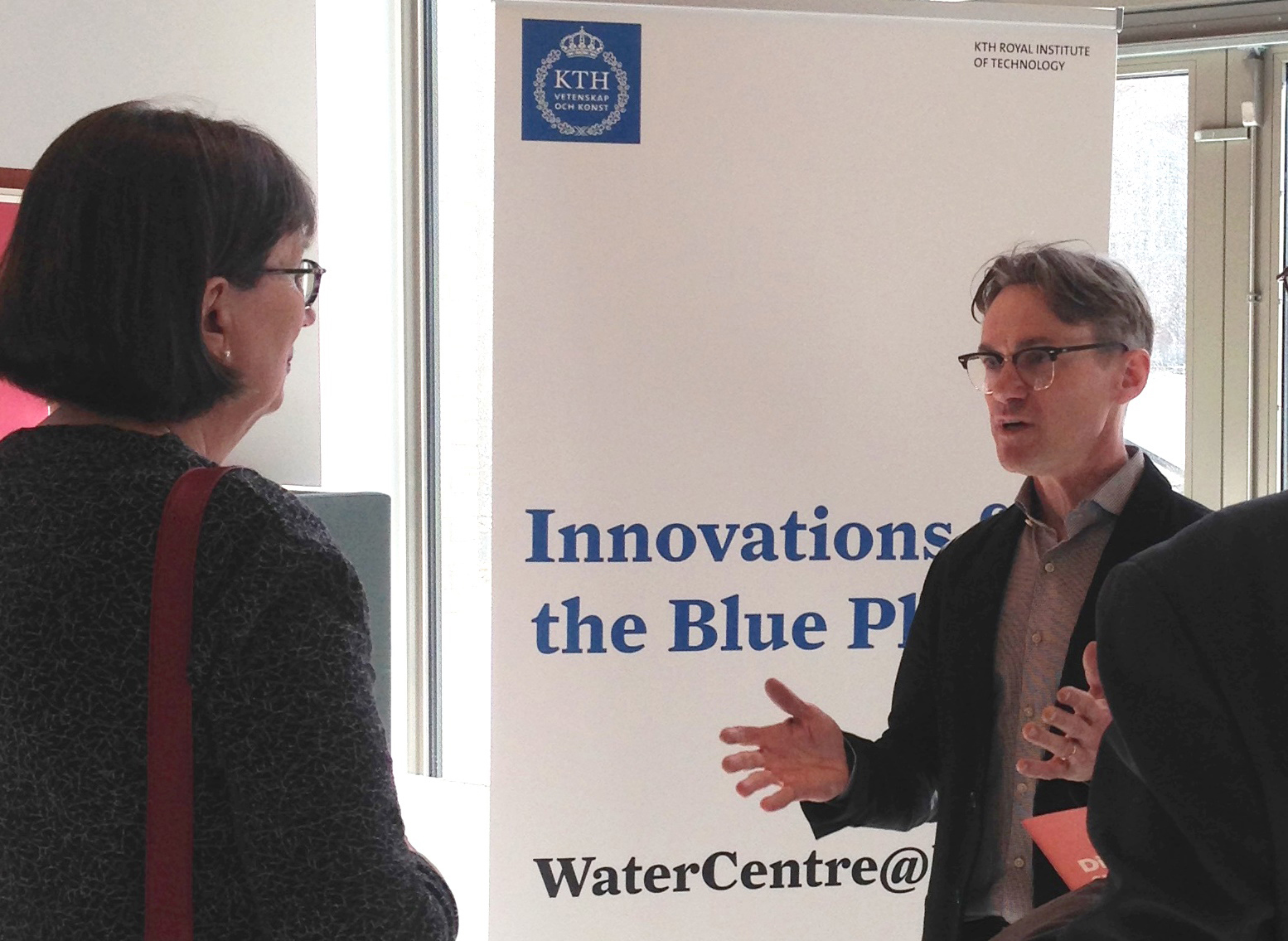KTH part of the new Mistra programme ‘Smart Infrastructure Maintenance’

Mistra's board just decided on a new research programme that will lead to smarter methods of planning, financing and organising the maintenance of municipal infrastructure focusing on water, sewers and roads. Through WaterCentre@KTH, researchers from different schools at KTH will gather in a multidisciplinary team within the programme.
“The lack of knowledge and expertise in our infrastructure is a threat to society”, says Mistra, the foundation for environmental strategic research, in the introduction to the initiative. A year ago, the call opened for developing new methods for maintenance of infrastructure of water, roads and tramways with emphasis on municipal level. Mistra will invest SEK 49 million over four years and additional co-financing from partners means a total budget of more than SEK 80 million.
Within KTH, the application work has been led by WaterCentre@KTH. Director David Nilsson is very pleased with the outcome; "It's great that Mistra believes in our work and our expertise in the field. I am also very pleased that Stockholm City has joined as a strong partner. This programme will be very valuable for the city's companies, for other organisations in Sweden, and internationally."
The programme, conducted over 4 plus 4 years, will involve many public and research actors and will be coordinated by RISE.
"We are a strong consortium with researchers from the Swedish National Road and Transport Research Institute VTI, KTH Royal Institute of Technology, Linköping University, Lund University of Technology, Chalmers and RISE, but especially important is the participation of the municipalities. Senior researchers are complemented with doctoral students who will largely work in the municipal organisations. This means that research is based on needs and that municipalities will increase the possibility to directly absorb the new research, says Programme Manager Annika Malm, RISE.
Specifically, the programme will involve using ICT, sensors and AI for state assessments, forecasts and decision support on infrastructure, as well as understanding how investments, financing and business models and organisations can be renewed to best meet societal challenges surrounding aging infrastructure and sustainable development.
"We live in an exciting time. Old infrastructure meets new technologies and new ways of thinking and organising society around today's challenges, not least in the water area," says David Nilsson. The challenges are multi-faceted, so different types of organisations with different kinds of knowledge need to work together. KTH's contribution comes from separate areas such as civil and architectural engineering, environmental economics, history and industrial organisation. Mistra's decision is proof that our intentions for increased cooperation, both within KTH and with our partners, are correct”, says David Nilsson.
For more information contact:
David Nilsson, Director WaterCentre@KTH,
david.nilsson@abe.kth.se
Annika Malm, researcher RISE, future Programme Manager,
annika.malm@ri.se